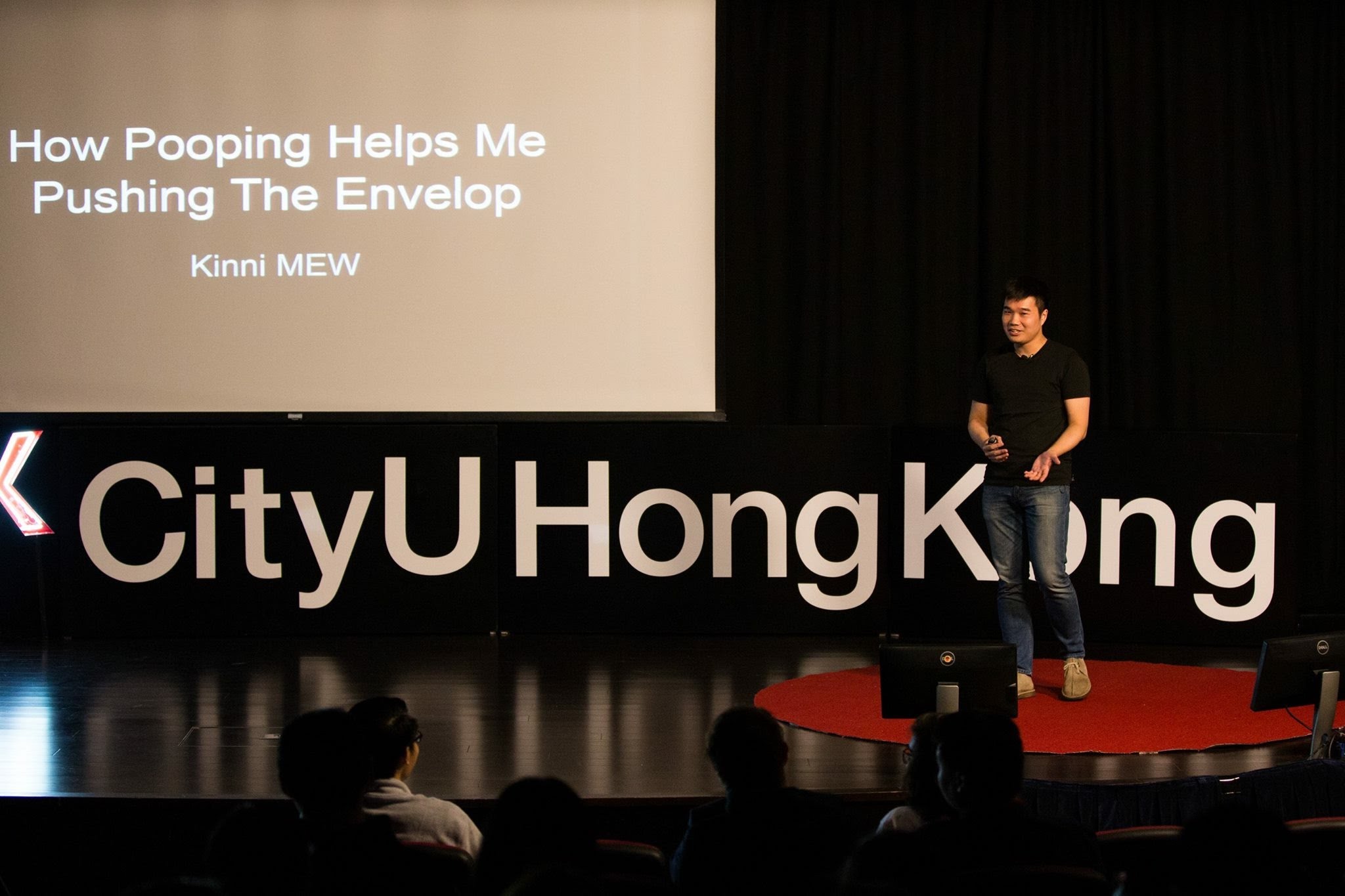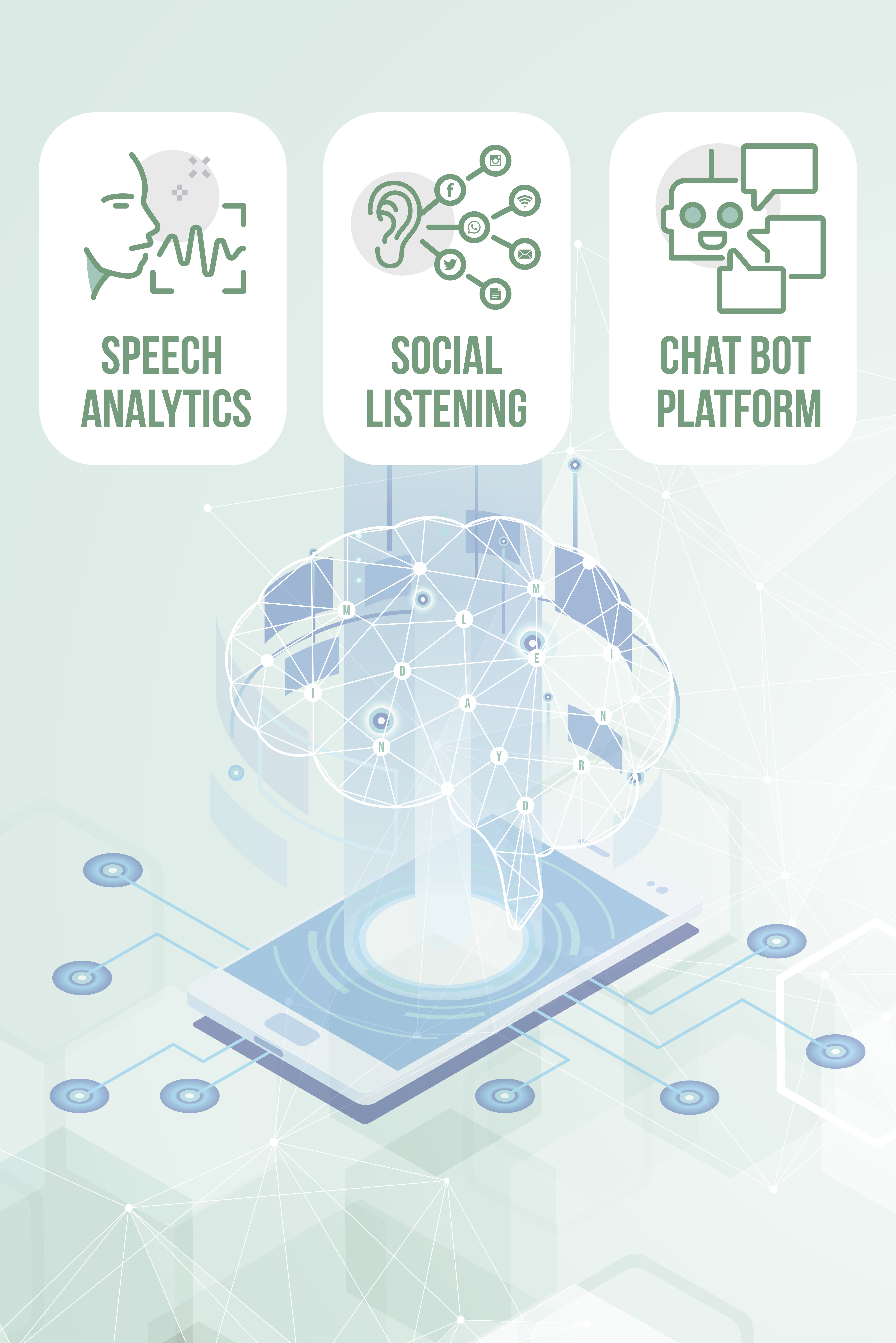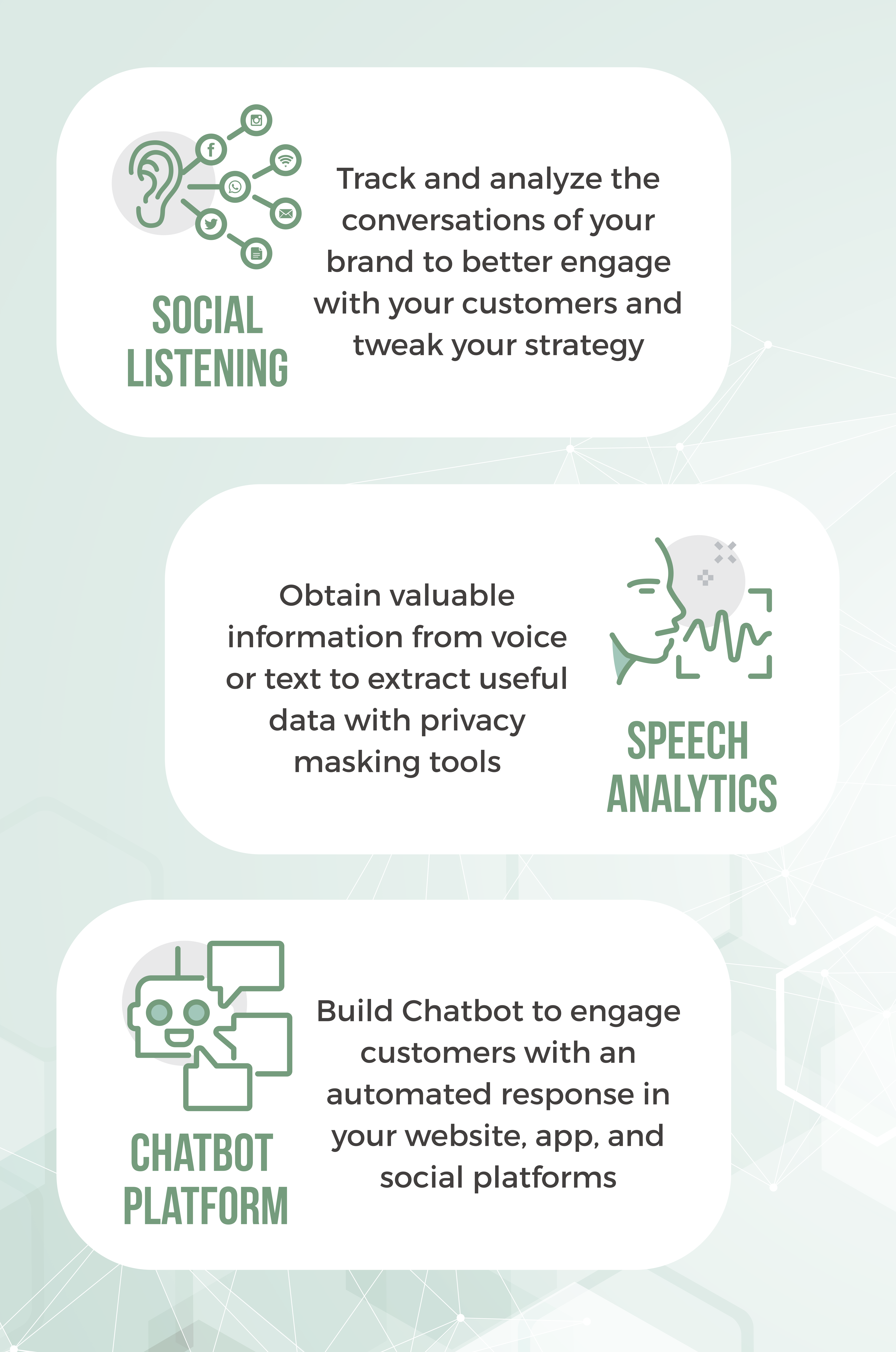Main navigation

When it comes to creation and innovation, a well-known proverb often reveals a plain yet profound truth: “Necessity is the mother of invention.” Ask Kinni Mew, co-founder and CEO of MindLayer, and he would probably agree with you – as that was literally how he set up this infotech startup specialising in chatbots and related technology.
Not just chatbots
Back in 2015, when Kinni participated in the Cyberport University Partnership Programme (CUPP), he got a wonderful opportunity to go on an exchange to Silicon Valley in San Francisco as well as attend a short course in entrepreneurship at Stanford University. All went very well – except perhaps his business in Hong Kong. At that time, Kinni had already developed some apps and generated some income. However, for the ten days when he was in the States, he had not answered any customer enquiries. And when he came back Hong Kong, he found that sales had dropped noticeably. “I immediately thought: Can I introduce some automation into our customer service?” That was how MindLayer – which helps clients and their customers “chat in intelligent mind and multi-layer” – gradually came into being.
In layman terms, what MindLayer provides are products and services that allow clients (who are usually large enterprises and organisations as well as government departments) to create their own chatbots in their customer service. But the whole idea is much broader than mere chatbots. “Our slogan is ‘Engineering for Customer Engagement’. As such, we strive to apply engineering expertise to enhance our clients’ engagement with their customers.” How exactly is this achieved?
Automation, consistency, scalability
There are three main aspects. “The first is automation”, Kinni revealed, which is mainly the use of chatbots, ie, software applications designed to conduct online conversations using text or speech (the latter is also called voicebots). “The second is consistency.” Different customer service officers may give different answers, and even the same officer might give different answers on different days. Using chatbots with standardised answers prevents such inconsistency. “The third is scalability”, which means that the service capacity (ie, the number of virtual CS officers) can be scaled up and down according to the needs of a particular day.
Kinni even analysed the advantages of chatbots over real staff members in a humorous way. “Chatbots won’t ask you for masks, they won’t complain, and they won’t resign!” The last point is not a joke at all as training a staff member uses considerable resources, and every resignation is a loss to the company.


Chinese & Cantonese
There are so many chatbots in Hong Kong and around the world. What is so special about MindLayer? The brief answer consists of two magic words: Chinese, Cantonese. “When we first started our business, chatbots of tech giants like Google and Microsoft did not support Chinese and Cantonese.” That was precisely why DBS Accelerator, a collaborative initiative by DBS Bank (Hong Kong) and Nest (a global innovation platform supporting entrepreneurs), chose MindLayer as its Cantonese capability is totally unique in Hong Kong at that time. After a few years, MindLayer now covers all the most popular dozen or so languages in the world.
Is MindLayer still enjoying an apparent monopoly in Cantonese chatbots? The answer is “no”. Kinni explained with a golden rule in the commercial world: “Whenever there is a market, there will be competitors.” So, how can MindLayer stand head and shoulders above its business rivals? Kinni cited two outstanding features with calm confidence.
Unrivalled experience
“The first is our relevant practical experience. We have been serving many large enterprises, who trust us and are willing to collaborate with us. Many companies claim they can do it, but they just don’t have much experience yet. The second is our R&D team. About eighty per cent of our staff are engineers or computer scientists by training, and we put substantial resources in R&D. That’s why we are leading the way in technology.”
Kinni himself is an engineer specialised in computer programming. Not only that, but he is also a Google Developers Expert. All over the world, there are only a few hundred technical experts that have been bestowed such an admirable title, with only three in Hong Kong – and Kinni is the first one.
Pushing the envelope
During his studies and on his startup journey, Kinni has always had a strong connection with CityU. He first pursued an associate degree in marketing at CityU, then earned his bachelor’s degree in electronic engineering here. He was nominated by CityU to join Cyberport’s CUPP, and he gained financial support of HK$400,000 thanks to CityU’s Technology Start-up Support Scheme for Universities (TSSSU). “I feel deeply that CityU has been helping me a lot, and I’m immensely grateful to have had TSSSU’s support. Without this scheme, we would have called it quits long ago.”
Kinni has even given a TED talk co-organised by CityU. The theme is “Pushing the Envelope”, which means going beyond the limits of what is thought possible. That portrays quite vividly Kinni and MindLayer’s career path, and indeed the entrepreneurship pathway of any startup.
Investors vs autonomy?
MindLayer was established in late 2015. When a startup has been conducted for a few years and gradually on track, it would inevitably come to a crossroads where it needs to decide somehow between continued autonomy (which often implies slower growth) and inviting new investors (which may mean lower autonomy). What is Kinni’s choice?
“That’s really an interesting question,” Kinni said. “At this moment, I have no definite answer. To myself, both are very OK.” However, he does not only think about himself. “As a team, I have to take other colleagues into consideration,” he insisted. “Some of them like this company because we enjoy considerable freedom, but some may want this startup to grow pretty fast. I need to balance both views.”
Trials and tribulations
For fresh graduates pondering whether to found a startup, what advice would Kinni give? He answered with an amused laugh: “I often discourage young people from establishing startups!” Why? “The pressure and challenges could be overwhelming, and you have to ask yourself if you could withstand and cope with them.” He frankly shared his own trials and tribulations to demonstrate the harsh realities of running a startup.
Kinni himself has experienced a lengthy eight months in which the company did not get a single contract. When he was finally given one, Kinni optimistically consoled himself: “Now that I can still survive after the last eight months, nothing whatsoever in the world could ever beat me!” Then, Fate tested him again by not giving him another contract for an agonising eleven months …. “What if you have no income for eleven months and your family asks for housekeeping money? And what if your girlfriend asks you when you can get married and buy a flat? ...”
Tremendous satisfaction
But make no mistake. Kinni discourages people only for the sake of encouraging those that are genuinely interested. As the late Randy Pausch said in his inspiring memoir The Last Lecture: “The brick walls are there to stop the people who don’t want it badly enough. They’re there to stop the other people.” In the same spirit, Kinni said: “If, after listening to the above horrible scenarios, you still want to set up a startup, then go ahead by all means! And do it while you’re still young as you don’t have much to lose!”
The next vital step is to find complementary partners. “Understand what you lack, then find good partners to form a team,” Kinni suggested. “If you’re good at product development, find some teammate who’s good at sales and marketing, and vice versa.”
Then comes his perceptive concluding remark: “And if you’re truly dedicated to your work and have overcome all the obstacles, you’ll surely learnt a great deal and feel fulfilled. The satisfaction thus gained is even greater than monetary reward.”
AI versus humans?
It is almost a platitude that artificial intelligence (AI) will eventually, if not soon, replace human beings, resulting in massive unemployment. Will chatbots lead to such a dire consequence in the customer service sector? “Due to the exaggeration depicted in movies and newspapers, the public have an over-high expectation of AI,” Kinni smilingly explained. “But the truth is, even state-of-the-art technology cannot produce something remotely close to, say, Iron Man’s JARVIS or Star War’s R2D2.” Conclusion? “Large-scale redundancy will not occur in the foreseeable future.”
At present, callers should still be able to tell whether they are talking to a real person or a chatbot if they phone up a bank. As technology advances, perhaps someday we cannot tell the difference anymore. That said, chatting to Kinni is such an entertaining and enlightening experience, brimming with enthusiasm and positivity, one would never mistake him for a chatbot.